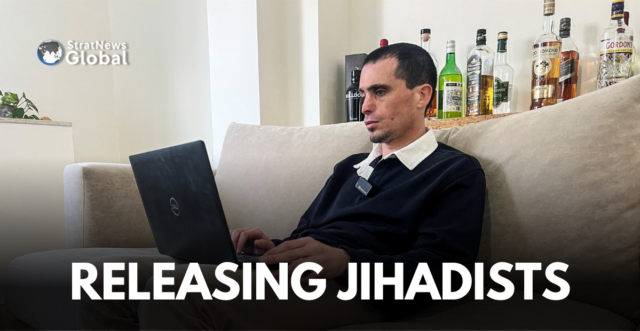One of the last things Oran Almog saw was broken glass, blood, and bodies after a suicide bombing in Israel rendered him blind when he was just 10 years old and killed 21 people, including his brother, father, and grandparents.
The man who planned the attack – Islamic Jihad militant leader Sami Jaradat – was released from an Israeli jail last month as part of a ceasefire deal to bring back Israeli hostages from Gaza and stop the fighting there.
Prisoner Exchange
Almog, now 32, and many in Israel are struggling to reach acceptance that the deal involves the release of Palestinian prisoners convicted for deadly attacks in decades of violence between Israelis and Palestinians.
“It was incredibly painful – something inside my heart broke,” Almog told Reuters after the release of Jaradat, who was sentenced to life in prison for his planning of the 2003 bombing in the port city of Haifa.
However, he added, “The high price we need to pay, and that I am paying personally, is less important at this moment because live Israeli hostages are going to return home.”
Under the agreement, reached with mediation by Egypt and Qatar, and support from the United States, 33 children, women, and older men will be handed over in exchange for hundreds of Palestinian prisoners and detainees, in a multi-phase process that could open the way to ending the war in Gaza.
Many of those set for release are detainees picked up in Gaza and not charged with anything. Others, like Jaradat, are connected with deadly attacks during periods like the Second Intifada, two decades ago, when scores of Israelis were killed in suicide attacks like the one that blinded Almog.
Some Oppose The Deal
Around 70% of Israelis support the Gaza deal, according to a poll published last month by Israel’s Institute for National Security Studies.
However a significant minority in Israel have opposed the release of Palestinian prisoners. This is for reasons including a fear that it will leave the militant Hamas group in power in Gaza and the fact that it left the fate of more than 60 male hostages dependent on further negotiations, which may fail.
“Israel will pay a heavy price for this deal,” said Shay Odesser, whose father and uncle were killed in an ambush in the occupied West Bank in 2002.
All five of the militants who carried out that attack were freed in 2011 under a landmark deal that saw the release of 1,027 Palestinian prisoners in exchange for Israeli soldier Gilad Shalit.
Among those freed was Yahya Sinwar, the architect of the October 7, 2023 attack on Israeli communities, in which Israel says some 1,200 people were killed. More than 250 were taken hostage in Gaza.
(with inputs from Reuters)





